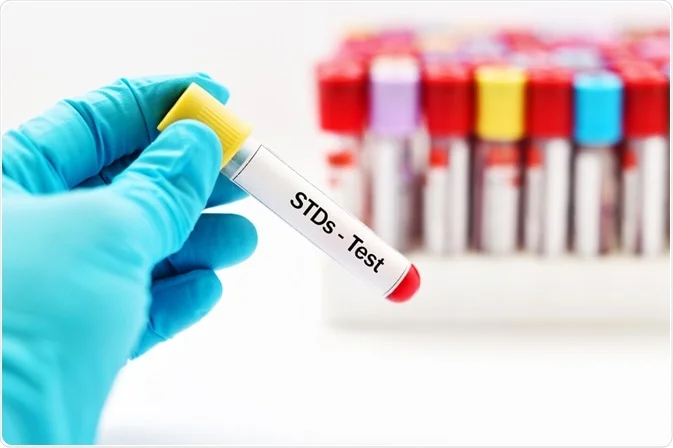Sexually transmitted diseases (STDs), also known as sexually transmitted infections (STIs) or venereal diseases, are infections spread primarily through sexual contact, including genital, oral, or anal sex. Bacteria, viruses, or parasites cause them and can lead to serious health complications if left untreated (Mayo Clinic).
Despite advancements in medical treatment and prevention, STDs remain a significant public health concern globally. Understanding the causes, prevalence, symptoms, and treatment options is essential for preventing infection and reducing transmission rates.
Prevalence Of STDs in Nigeria And Worldwide
The prevalence of STDs in Nigeria is notably high, particularly among young adults. A study conducted by Ismail A. Suleiman and Fola Tayo on the use of STD medications in Nigeria found that 82.3 per cent of affected patients were between twenty-one and forty years old. Males accounted for 70.2 per cent of reported cases. Quinolones were the most commonly prescribed antibiotics, accounting for 31.1 per cent of cases and 34.1 per cent of total antibacterial costs.
The global burden of STDs is equally alarming. According to the National AIDS, Viral Hepatitis, and STIs Control Programme (NASCP), approximately 499 million new cases of curable STIs occur worldwide each year, including 10.6 million cases of syphilis, 106.1 million cases of gonorrhea, 105.7 million cases of chlamydia, 276.4 million cases of trichomoniasis. These figures do not include additional cases caused by viral infections such as HIV, herpes simplex virus (HSV), and human papillomavirus (HPV). In Nigeria, the 2013 National Demographic and Health Survey (NDHS) reported that 4 per cent of women and 2 per cent of men experienced an STD, genital discharge, or sores within the 12 months before the survey.
Common Sexually Transmitted Diseases And Symptoms
There are over 20 known STDs, but some of the most common include Chlamydia, Gonorrhea, SyphilisTrichomoniasis, Genital herpes, Human papillomavirus (HPV), and Hepatitis B. The symptoms of STDs can vary depending on the infection, but some common signs include:
Pain or itching around the genitals, buttocks, and inner thighs.
Small red bumps, blisters, or open sores around the genitals, rectum, or mouth.
Unusual vaginal or penile discharge and irregular bleeding.
Painful urination and discomfort during intercourse.
Swelling or tenderness in the groin area.
Some STDs, such as chlamydia and gonorrhea, may not show immediate symptoms, making regular screenings essential for sexually active individuals.
Treatment Options For STDs
The treatment of STDs depends on whether bacteria, viruses, or parasites cause them.
- Bacterial and Parasitic Infections
STDs caused by bacteria or parasites—such as chlamydia, gonorrhea, syphilis, and trichomoniasis—can be effectively treated with antibiotics. The Mayo Clinic advises that completing the entire course of prescribed antibiotics is crucial to prevent reinfection or antibiotic resistance.
- Viral Infections
STDs caused by viruses—such as HIV, herpes, HPV, and hepatitis B—cannot be cured but can be managed with antiviral medications.
Antiviral drugs help reduce symptoms and lower transmission risk for infections like HIV and herpes (WHO).
For hepatitis B, antiviral treatments can slow liver damage and manage long-term health risks.
HPV vaccines can prevent HPV-related cancers and genital warts (HIV.gov).
- Preventive Measures and Vaccination
The best approach to reducing STD transmission is prevention. Key preventive measures include:
Consistent and correct use of condoms during sexual activity.
Regular STD screenings, especially for sexually active individuals.
Vaccinations for HPV and hepatitis B.
Mutual monogamy or reducing the number of sexual partners.
Daily suppressive therapy can help individuals with recurrent herpes outbreaks, reducing symptoms and transmission risk (Mayo Clinic).
The Importance of Awareness And Responsible Choices
STDs are a significant health issue, but awareness, education, and responsible choices can significantly reduce their impact. While medical advances have made many infections treatable or manageable, the best protection remains prevention.
Key Takeaways:
STDs are highly prevalent, affecting millions globally each year.
Many STDs show mild or no symptoms, making regular testing crucial.
Bacterial STDs like chlamydia, gonorrhea, and syphilis are curable with antibiotics.
Viral STDs like HIV, herpes, and hepatitis B are manageable but not curable.
Prevention is key— abstinence, safe sex practices, vaccinations, and routine medical check-ups can prevent infection and complications.
While social stigma around STDs still exists, prioritizing open conversations, regular screenings, and preventive measures can help individuals make informed choices about their sexual health.










